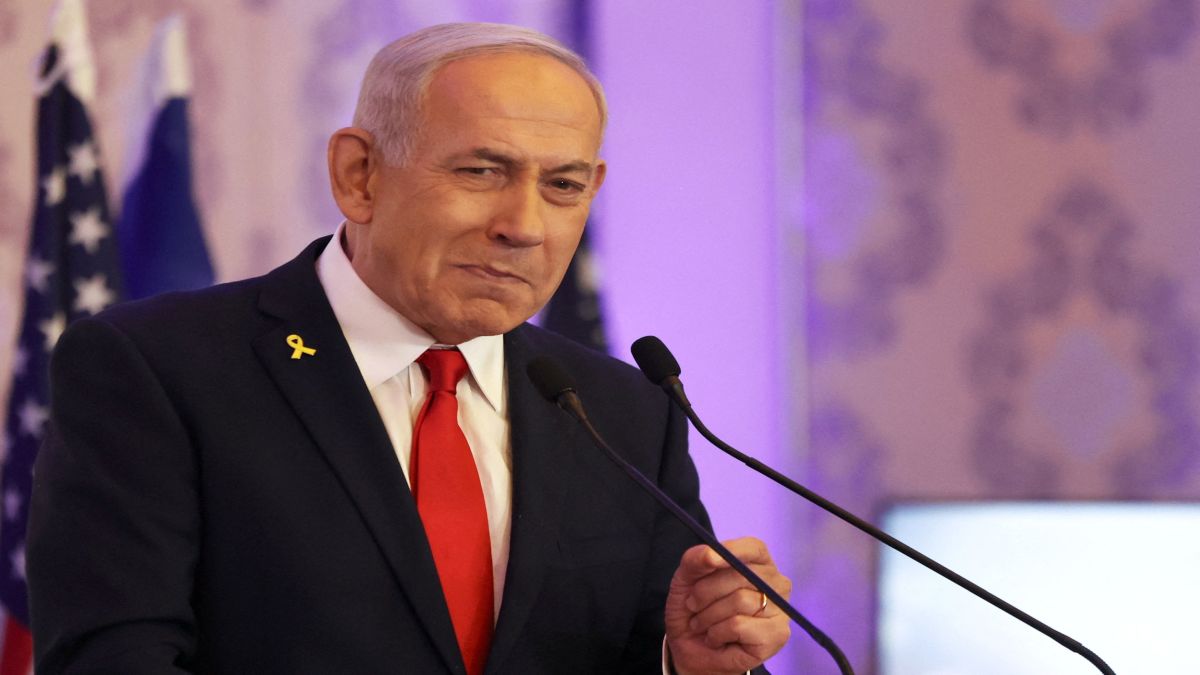Israel’s plan to take control of Gaza City, a move expanding military operations in the shattered Palestinian territory has drawn criticism at home and abroad, forcing Prime Minister Benjamin Netanyahu to defend it.
On Thursday, as the Israeli Cabinet approved of Netanyahu’s plan , Germany, a key European ally, announced it would halt exports of military equipment to Israel that could be used in Gaza. Britain and other European allies also urged Israel to reconsider its decision to escalate the Gaza military campaign.
Amid such pressure, Netanyahu once again defended his plan for Gaza City saying on X, “we are not going to occupy Gaza — we are going to free Gaza from Hamas.”
Netanyahu’s plan for Gaza
Earlier, Israel said it would intensify its 22-month war with Hamas by taking over Gaza City . An official familiar with the plans to take over Gaza City said the operation would be “gradual” and that there is no start date.
Later, Netanyahu’s office said the Cabinet had adopted “five principles”, including Gaza’s demilitarisation and “the establishment of an alternative civil administration that is neither Hamas nor the Palestinian Authority”.
The premier’s office also added that the Israeli army “will prepare to take control of Gaza City while distributing humanitarian assistance to the civilian population outside combat zones”.
The Israeli PM then wrote on X, “We are not going to occupy Gaza — we are going to free Gaza from Hamas.”
He said that the territory’s demilitarisation and the establishment of “a peaceful civilian administration… will help free our hostages” and prevent future threats.
Netanyahu’s Gaza City plan deemed reckless
The Israeli PM’s remarks come after his plan triggered swift criticism from across the globe, with China, Turkey, Britain and numerous Arab governments issuing statements of concern.
United Nations Secretary-General Antonio Guterres called the Israeli plan a “dangerous escalation” that risks “deepening the already catastrophic consequences for millions of Palestinians”.
Meanwhile, German Chancellor Friedrich Merz, who ordered for the suspension of military shipments to Israel , said it was “increasingly difficult to understand” how the new plan would help achieve legitimate aims.
Even within Israel, Netanyahu’s plan received mixed reactions. The group rallying for the hostages said the plan amounted to “abandoning” the captives. “The Cabinet chose last night to embark on another march of recklessness, on the backs of the hostages, the soldiers, and Israeli society as a whole,” the Hostage and Missing Families Forum said.
Out of 251 hostages captured during Hamas’ 2023 attack, 49 are still being held in Gaza, including 27 the military says are dead.
An expanded Israeli offensive could see ground troops operate in densely populated areas where hostages are believed to be held, local media have reported.
However, other Israelis, offered their support. “As they take control of Gaza, they will eliminate Hamas completely — maybe not completely, but at least a good percentage of them,” Chaim Klein, a 26-year-old yeshiva student, was quoted telling AFP.
Israel has repeatedly bombarded Gaza City and carried out numerous raids there, only to return to neighbourhoods again and again as militants regrouped. Today, it is one of the few areas in Gaza that hasn’t been turned into an Israeli buffer zone or placed under evacuation orders.
Umm Youssef told AP said she had left the city for over 16 months before returning to her home. “The area is all rubble. Rubble is an overstatement, it is a sandpile. There is nothing here to occupy. There is no life here,” she said.
Meanwhile, Hamas on said the “plans to occupy Gaza City and evacuate its residents constitutes a new war crime”. It warned Israel that the operation would “cost it dearly”, and that “expanding the aggression means sacrificing” the hostages held by militants.
With inputs from agencies


)

)
)
)
)
)
)
)
)



